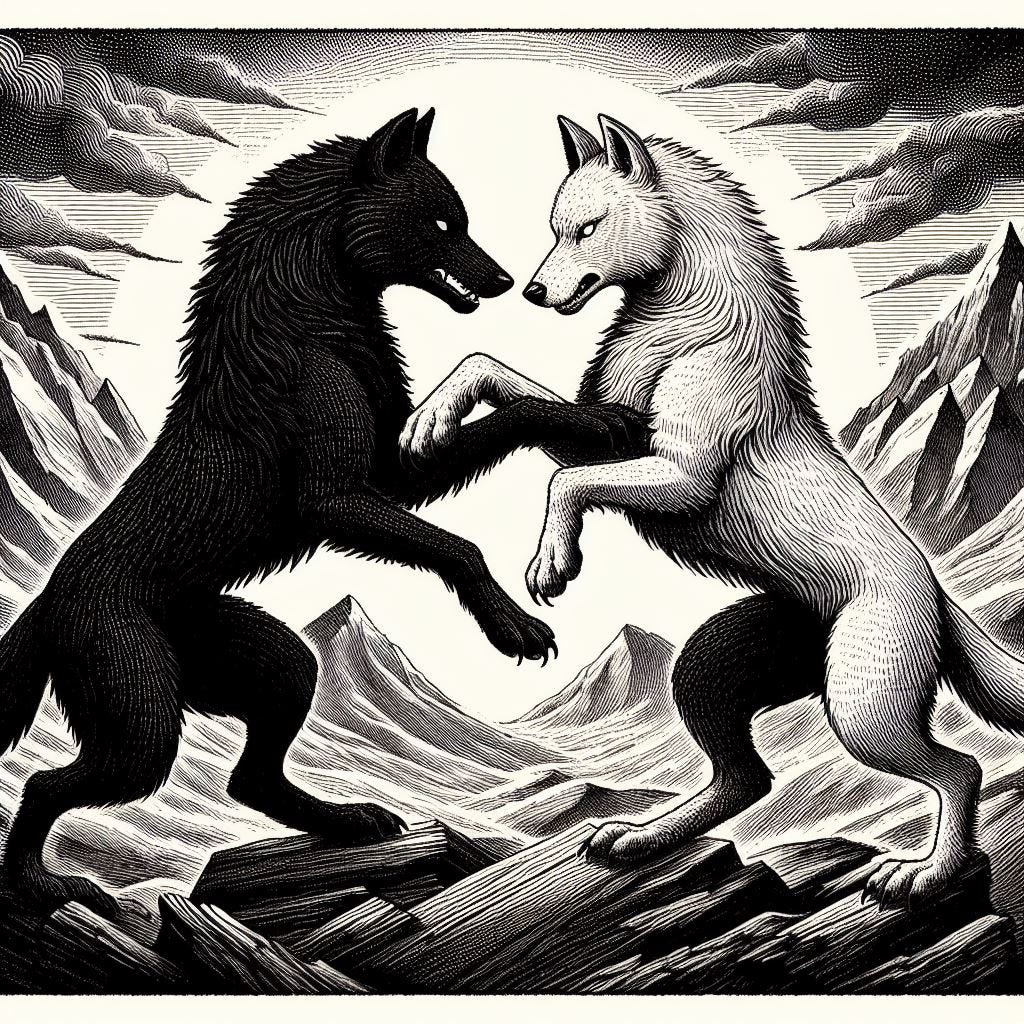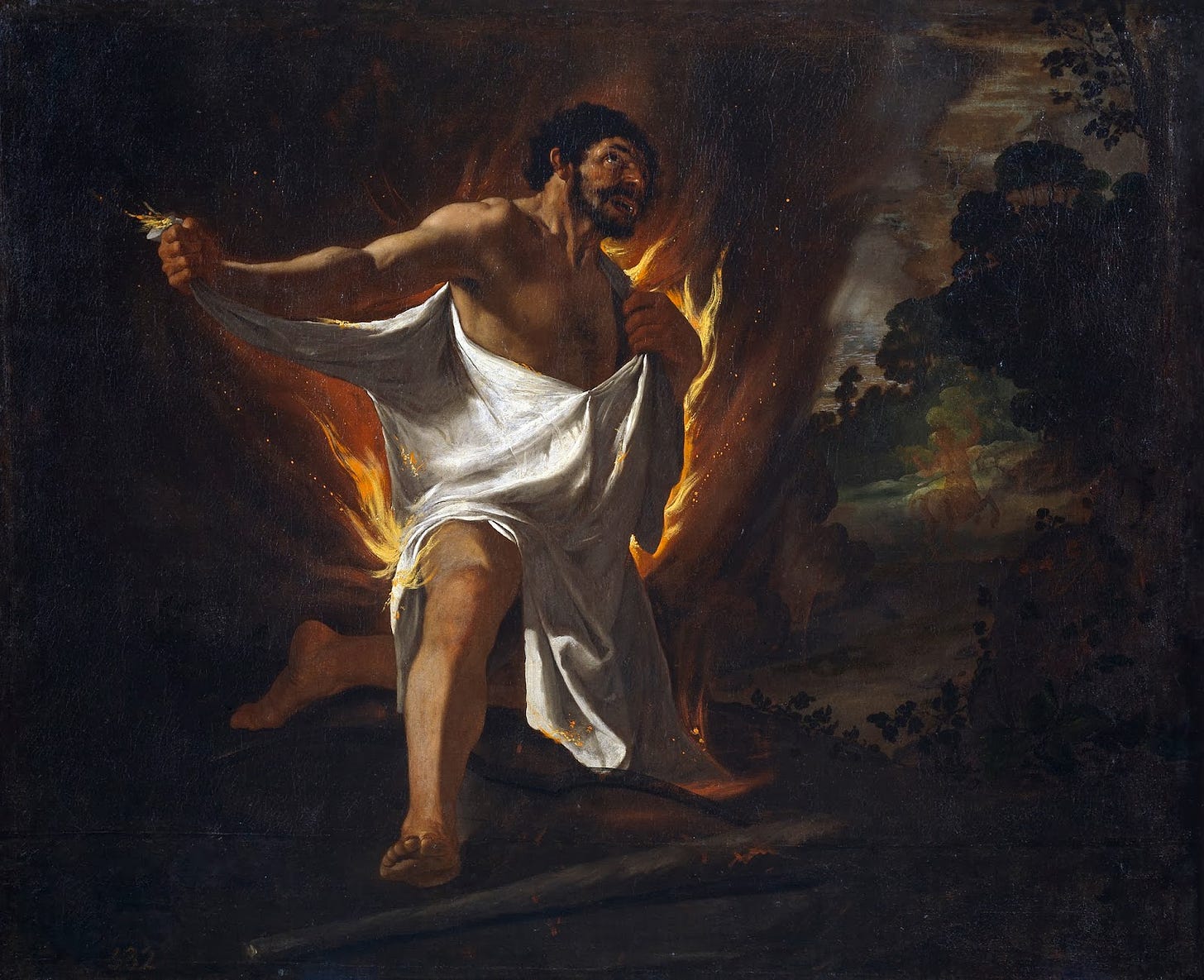Social Media: The Mask Burning Us Alive
Your online persona could be your undoing
Note: This article was originally published in Dutch by Elsevier Weekblad. It has been translated, adapted, and republished with editorial consent.
Self-validation is a drug, and social platforms are our drug-dealing overlords.
We all crave a little dopamine. Likes, shares, and tags provide us with our daily hits. Tech companies play into this addiction. Their algorithms guess what keeps us glued to the screen. Generally, any kind of positive rush will do.
This exploits a lack of self-control. Human beings strive to be appreciated by their kind, which makes them fiend for approval. That quickly turns into impulsive pleasure-seeking.
It feeds into a psychological trap.
By posting selectively, we can tailor how we are seen. Online profiles become facades, obscuring the imperfect whole of our existence. It is not just that we confuse the digital world with reality. It is that we want to.
But in reality, no person is purity itself.
Social media feeds the persona: the part of us that presents a pretty image and wants to be accepted for it. This tendency has always plagued civilization. But, never was it as enabled as it is now.
Unfortunately, denying our dark side comes with a price.
Carl G. Jung, the famous Swiss psychiatrist, pointed out that our psyche is divided into a conscious and an unconscious part.
The conscious part we control. The unconscious, however, has a will of its own. Our hidden memories, repressed traumas, and dark traits lurk there. Consider involuntary outbursts of anger, psychotic episodes, and post-traumatic stress. These overcome a human being, and can only be confronted once they rear their ugly heads.
Our “shadow” is not moved by us, but an independent force.
This is perfectly lain out by the Cherokee myth of the Two Wolves:
Elder: “A terrible battle between two wolves rages inside me. One is evil: he is arrogance, self-pity, and resentment. The other is good: he is peace, harmony, and love. The same battle rages within you, as well as everyone else.”
Boy: “Which one will win?”
Elder: “The one you feed.”
The good wolf must be fed if it is to win. This is why introspection is key. To individuate (to realize your full potential) you must slay the evil wolf. Jung called this the integration of the shadow: a process through which the true self emerges. By neglecting it, one risks letting the darkness within reign supreme.
The persona is not all bad.
It fulfills a vital function. So long as we remain unindividuated, it connects us to the group. We depend upon others for our survival, making it necessary to occasionally cater to their whims.
It can, however, also be our undoing.
If we cling solely to our masks, our lives become a facade. Our true nature – as well as what we may offer the world – remains undiscovered. And the shadow gradually gains ground.
Jung illustrated this with the myth of Heracles. Identification with the persona, according to him, is like wearing the “Shirt of Nessus”. Once the Greek hero put it on, it burned itself to his skin and boiled him alive. Out of misery, he then threw himself on a funeral pyre. Tragic way to go.
The modern “influencer” epitomizes this condition.
Because internet personas are just that: artificial. They broadcast a perfect avatar of themselves, which is then immediately undercut by their commentators. The ugly parts of their lives find some way to the center stage, resulting in the umpteenth instance of internet drama.
In the digital space, the persona reigns supreme; until the shadow comes to the fore.
Jung lived from 1875 to 1961. During his lifetime, he saw how technology provided unparalleled prosperity, but also the atomic bomb. He warned: Western poverty is not material, but spiritual. If we are not to destroy ourselves, we must look within: and learn how to wield our newfound power responsibly. Given the current state of civilization, this was prophetic.
The internet only exacerbated the threat.
It makes us worship technology and neglect (our own) nature. The Homo digitalis does not exist. He is an image on a screen. And our biology is inescapable. Humans are limited, vulnerable, and doomed to die.
Online persona building is merely denialism thereof: a cope against life’s grittiness. Flawed as we may be, we can still attempt to be perfect digitally. It is much easier than building character.
But if we do not confront the evil wolf, it will eventually confront us.
Focussing solely on how we are perceived – instead of growing strong — gradually hollows us out and makes us sitting ducks. Our demons do not book an appointment first. They typically strike when we are weakest.
For social media not to destroy us, we must admit to its superficiality.
It has its uses. It may even help you distribute your writing. But it is no substitute for social life.
The key then, must be to use it; before it uses you.







